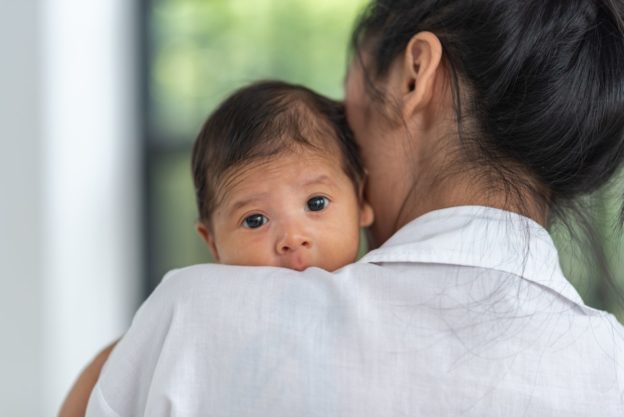What Is Secondary Infertility?
Secondary infertility is when women and men who already have one or more children are unable to conceive another child for a variety of reasons. In order for the condition to be considered secondary infertility, the previous pregnancies must have occurred naturally without the intervention of fertility medications or treatments such as IVF and IUI.Secondary infertility is diagnosed in couples who have been actively trying to conceive a baby for six months to a year with no success. Recurrent pregnancy loss in which couples are able to conceive without being able to carry the pregnancy to term can also be categorized as a form of secondary infertility. Such cases warrant in-depth infertility counselling to understand the underlying cause of recurrent pregnancy loss and other health implications that may apply.
While there are certainly other options for growing your family such as adoption, at ONE Fertility Kitchener Waterloo, we believe that our patients should have the ability to go through this process on their terms. Our goal is to help our patients get the right fertility counselling and treatments that will yield the results they want.
Causes of Secondary Infertility
There are several reasons why women and men might experience secondary infertility challenges. For instance, a patient could have a new sexual partner that has fertility issues. Even if the patient has the same partner, sometimes, fertility issues can develop later in life or after having one or more successful pregnancies. Then, there are gender-specific fertility issues that men and women can experience.Women can suffer from infertility due to endometriosis, ovulation disorders, polycystic ovary syndrome, excessive breastfeeding after previous childbirth (body stops ovulating or releasing eggs for fertilization), fallopian tube blockages caused by venereal infections (chlamydia or gonorrhea), or growths (fibroids or polyps) in the uterus.
In some cases, age may also be a factor. Women are born with a finite number of eggs. As they get older, the quality and quantity of those eggs begins to rapidly deplete. Around age 40, most women have a minimal ovarian reserve or egg supply and this can significantly decrease the chances of achieving a successful full-term primary or secondary pregnancy.
Significant weight gain and dietary changes can also negatively impact a woman’s chances of conceiving a child as this can lead to ovary dysfunction in some women.
Men can also suffer from infertility issues that mostly have to do with declining sperm health or poor motility as they get older. Since testosterone plays an important part in sperm production, men with low testosterone may have a harder time conceiving a child with their female partners.
There are a number of conditions and factors that can contribute to low testosterone levels in men. Age is one of the primary factors. As men get older, their testosterone levels may naturally drop. Other causes for low testosterone could be urinary tract or genital organ injuries or medical conditions such as genital infections, thyroid diseases, diabetes, blood diseases, emotional stress, stroke, coma, respiratory failure, congestive heart failure, and the list goes on. Certain medications that are used to treat various medical conditions can also have a negative hormonal impact that leads to low testosterone as a side effect for men.
External factors that cause low testosterone include:
- Exposure to harmful chemicals like lead, pesticides, excessive heat, and industrial chemicals
- Using commercial sexual lubricants that are formulated to kill sperm on contact
- Excessive weight gain, which can cause a decrease in testosterone levels and increase estrogen levels
Secondary infertility cause and treatment evaluations include taking your full medical history, performing a physical exam for you and your partner, and doing bloodwork. For women, we also perform an exploratory ultrasound, whereas for men we perform a semen analysis.
What Are the Potential Signs of Secondary Infertility?
Potential signs of secondary infertility are the same as those for primary infertility. If you and your partner have been trying to conceive a child for at least six months to a year with no success, then the chances are high that you may be experiencing secondary infertility after a previous pregnancy. The chances of secondary infertility increase exponentially if you or your partner are over the age of 35 and have experienced certain medical conditions such as irregular or painful menstruation, pelvic inflammatory disease, or miscarriages for women and low sperm counts for men.Emotional Effects of Secondary Infertility
Infertility in general—regardless of whether or not you’ve already had children—can be emotionally devastating, especially if you really wanted to have another child. The stress of trying so hard to conceive without being able to carry a pregnancy to term can place a massive emotional strain on the couple’s relationship with each other and their friends and loved ones.Friends and family might exhibit a lack of empathy or sympathy by reminding the couple that they should be grateful for the child or children they already have. What many people who haven’t experienced secondary infertility don’t understand is that oftentimes, there are feelings of guilt, anger, and even a sense of grief or loss that are associated with it.
It’s important to know that emotional support through comprehensive fertility counselling is available to help couples get through this difficult and often painful experience.
Secondary Infertility Treatment Options for Men and Women
Secondary infertility treatment options are the same as those for primary infertility.- Ovulation inducing medications for women with an ovulatory disorder (clomiphene and letrozole)
- Intrauterine insemination (IUI)
- In vitro fertilization (IVF)
- Intrauterine surgery to repair structural problems with the uterus caused by medical issues such as fibroids, polyps, and scar tissue
- Surgery to repair testicular varicocele in men
- Starting men on an antioxidant and anti-aging supplement regimen to increase fertility and improve semen quality





